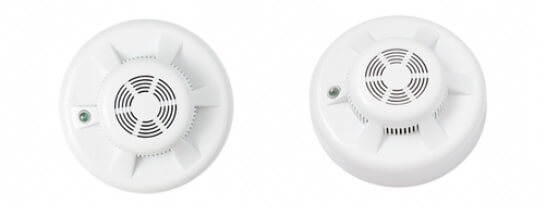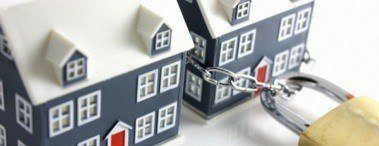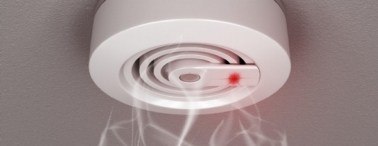
Recently (November of 2013), the Ontario government passed legislation that requires Carbon Monoxide (CO) detectors to be mandatory in all homes. The implementation date has yet to be announced, but it will likely be in early 2014. So I thought I would revive an article that I wrote a few years ago...everything we say about smoke detectors equally applies to CO detectors.
This is the call of hundreds, if not thousands of fire safety organizations and fire departments around North America, and I believe that most of us think it is true, smoke detectors save lives.
So why am I writing an article about this? Has it not been covered a million times before? Yes it has, but people are still dying needlessly in fires where the smoke detectors were not functioning properly. Yes the smoke detectors were installed, but they were not maintained properly.
There have been a number of articles and press releases from such good organizations like the Ontario Office of the Fire Marshall (www.ofm.gov.on.ca) and Canada Mortgage and Housing Corporation (www.cmhc-schl.gc.ca), that it is hard to add anything more to their facts and figures. I invite you to visit their sites and see what they have to say. However there is still one area that they do not really cover enough to my liking and that is maintenance of these devices.
Like any piece of mechanical equipment, car, lawn mower, computer, a smoke detector requires maintenance. Very simply put, if these devices are not maintained, they will not work.
So what is maintenance for a smoke detector? Well it basically falls into three areas, cleaning, testing, and expiration.
Cleaning
Cleaning is important because there are two areas of the smoke detector that can get covered in grease from cooking, spider webs, insects or paint. Those areas are the vents on the cover of the detector and the sensor area that detect the presence of particles in the smoke. If the vents are clogged with dust, spider webs, etc, the smoke cannot get in the detector to set the alarm off. Likewise, if the sensing areas are obstructed, the detector will not properly sense the particles the way it should to give proper and timely warning. These two areas need to be kept clean.
Testing
This is the other area I feel needs to be addressed. Smoke detectors do require regular testing, but how? They are usually in difficult to reach places, or if you have limited mobility it may be impossible to test these things. The other concern I have is if you manage to be able to reach the test button, all you are really testing is if the buzzer will sound. So if your vents are clogged with spider webs, but you manage to test your detector monthly with the test button, there is still a chance it will still not help you in the case of a fire because the smoke will not reach the sensor. To test true operation, you need to test with an aerosol type agent.
Expiration
Here is another issue that seems to elude people often. Smoke detectors are mechanical devices and even when maintained properly they do not last forever. In the last several years, manufacturers have more clearly identified the expiry date of smoke and carbon monoxide (CO) detectors, but in older models the date coding is cryptic at best. Most people are not aware that most smoke detectors expire at ten years and CO detectors are around five years (always follow the manufacturer's recommend replacement schedule).
So what do I recommend? I recommend the following every six - twelve months:
- Clean the exterior of your smoke detector with a damp cloth.
- Clean the interior of the smoke detector with a vacuum and brush attachment.
- Visually inspect the sensing area of the smoke detector to ensure it is not coated with cooking grease, overspray from painting, etc.
- Change the batteries (when the clocks change is a good time).
- Check the expiration date of your detector and mark it down.
I recommend that you do the following monthly:
- Test the detector with an aerosol product and not just the test button.
- Ensure that all the interconnected detectors activate when the detector is tested.
I recommend the following as necessary:
- Change the batteries after a power outage.
- Change the batteries when you return from vacation.
- Complete the cleaning cycle during and after any home renovations.
By following these recommendations, you will ensure that you, your family and neighborhood is safe in the event of a fire.
Posted by: John Kuehnl-Cadwell






